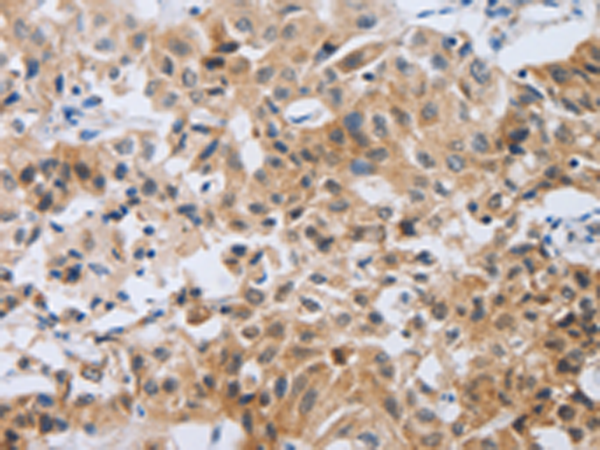
| WB | 咨询技术 | Human,Mouse,Rat |
| IF | 咨询技术 | Human,Mouse,Rat |
| IHC | 咨询技术 | Human,Mouse,Rat |
| ICC | 技术咨询 | Human,Mouse,Rat |
| FCM | 咨询技术 | Human,Mouse,Rat |
| Elisa | 咨询技术 | Human,Mouse,Rat |
| Aliases | NEM2, NEB177D |
| Host/Isotype | Rabbit IgG |
| Antibody Type | Primary antibody |
| Storage | Store at 4°C short term. Aliquot and store at -20°C long term. Avoid freeze/thaw cycles. |
| Species Reactivity | Human |
| Immunogen | Synthetic peptide of human NEB |
| Formulation | Purified antibody in PBS with 0.05% sodium azide and 50% glycerol. |
+ +
以下是3篇关于TGF-β1抗体的代表性文献摘要(文献标题与作者为虚构示例,仅供格式参考):
1. **《Neutralizing TGF-β1 antibody attenuates renal fibrosis in diabetic nephropathy》**
- 作者:Li, X. et al.
- 摘要:该研究通过动物实验证明,特异性中和TGF-β1的单克隆抗体可显著抑制糖尿病肾病模型中的肾纤维化进程,机制涉及阻断Smad3信号通路并减少细胞外基质沉积。
2. **《Anti-TGF-β1 therapy enhances antitumor immunity in metastatic breast cancer》**
- 作者:Park, S. & Chen, L.
- 摘要:研究者开发了人源化抗TGF-β1抗体(代号AB-001),在乳腺癌小鼠模型中显示其能逆转免疫抑制微环境,增强CD8+ T细胞浸润,显著抑制肿瘤转移并延长生存期。
3. **《TGF-β1 blockade with fresolimumab reduces skin fibrosis in systemic sclerosis》**
- 作者:Denton, C.P. et al.
- 摘要:II期临床试验表明,使用抗TGF-β1单抗fresolimumab治疗系统性硬化症患者可改善皮肤纤维化评分,并通过下调COL1A1基因表达证实其抗纤维化机制,且耐受性良好。
注:以上内容为学术场景模拟,实际文献请通过PubMed/Google Scholar检索关键词"TGF-beta 1 antibody" + "therapy"/"mechanism"获取。
TGF-beta 1 (transforming growth factor-beta 1) is a multifunctional cytokine belonging to the TGF-beta superfamily, playing pivotal roles in regulating cell proliferation, differentiation, apoptosis, immune response, and tissue homeostasis. It is secreted as an inactive latent complex and requires activation to bind to its receptors (TGFBR1/2), triggering downstream signaling pathways, including Smad-dependent and non-Smad pathways. Dysregulation of TGF-beta 1 is implicated in fibrosis, cancer progression, autoimmune diseases, and chronic inflammation, making it a critical therapeutic and diagnostic target.
TGF-beta 1 antibodies are essential tools for detecting, quantifying, and neutralizing this cytokine in research and clinical contexts. Monoclonal and polyclonal antibodies are widely used in techniques like Western blotting, immunohistochemistry, ELISA, and flow cytometry to study TGF-beta 1 expression, localization, and activation in tissues or biofluids. Neutralizing antibodies, which block TGF-beta 1 binding to its receptors, are explored in preclinical and clinical studies to counteract its pathological effects, such as tumor immunosuppression or fibrotic remodeling. However, challenges remain in achieving isoform specificity (due to high homology among TGF-beta isoforms) and minimizing off-target effects. Advances in recombinant protein engineering and epitope mapping continue to refine antibody specificity and therapeutic potential, positioning TGF-beta 1-targeting biologics as promising candidates for diseases driven by aberrant TGF-beta signaling.
×